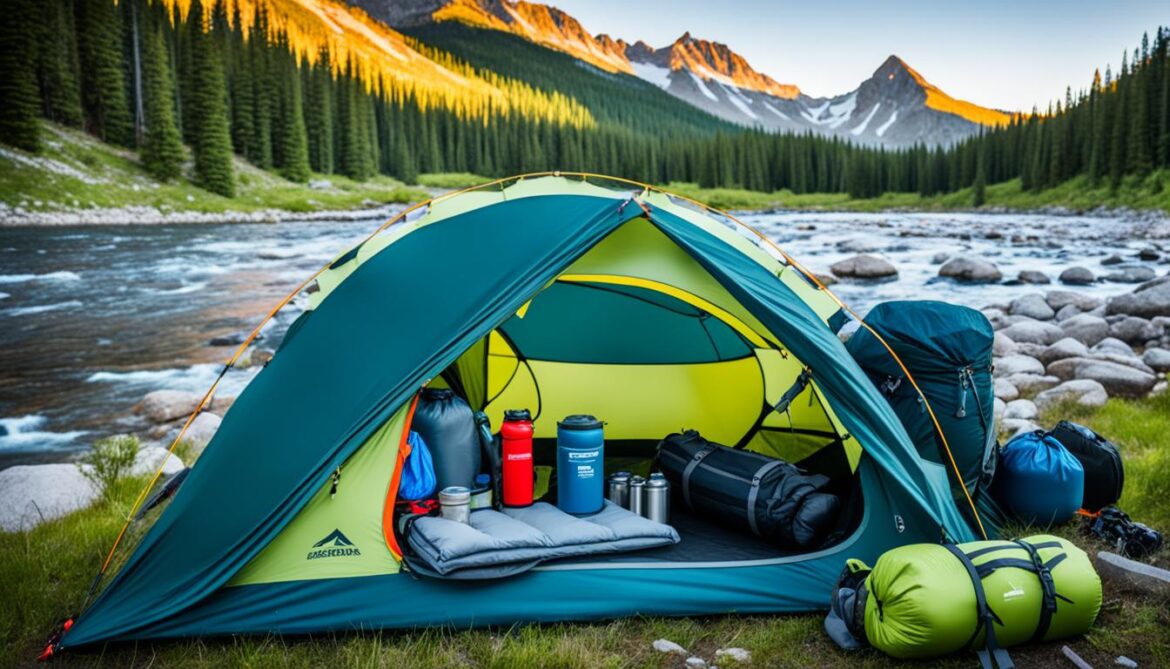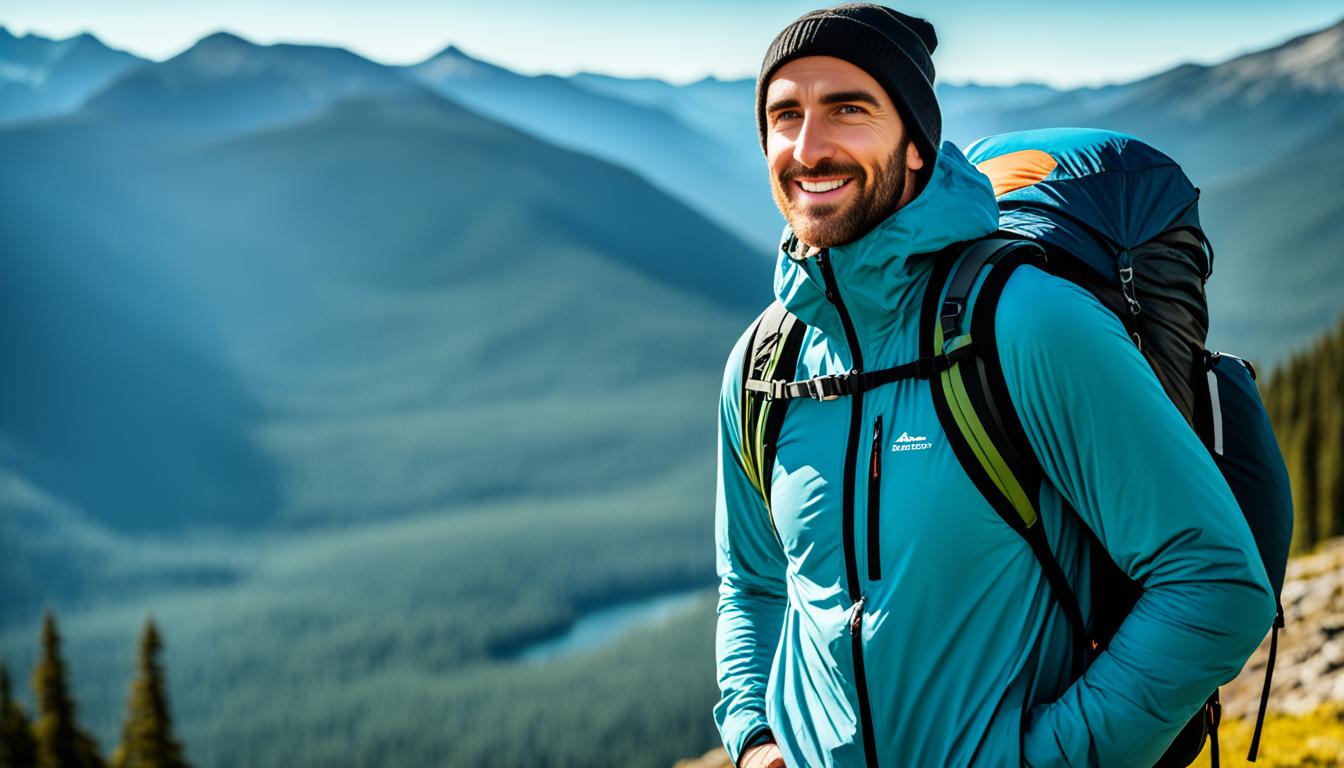Welcome to our comprehensive guide on how to prepare for camping solo. Whether you’re an experienced outdoor enthusiast or a first-time solo camper, this article will provide you with essential tips and guidelines to ensure a safe, enjoyable, and memorable adventure in the great outdoors.
Camping solo offers a unique opportunity for self-discovery, tranquility, and immersion in nature. However, it requires careful planning and preparation to make the most of your experience.
In this first section, we will cover everything you need to know about preparing for a solo camping trip. From choosing the right equipment and gear to understanding safety precautions and planning meticulously, we’ve got you covered.
So, let’s dive in and get ready to embark on an incredible journey of solo camping exploration!
Essential Solo Camping Equipment and Gear
When going solo camping, having the right equipment and gear is crucial to ensure a comfortable and enjoyable experience. Here are some essential items you should consider packing:
- Tent: Choose a lightweight and easy-to-set-up tent that provides sufficient space for one person. Look for features like durability, weather resistance, and proper ventilation to ensure a good night’s sleep.
- Sleeping Bag: Invest in a high-quality sleeping bag suitable for the camping season and climate you will be experiencing. Look for bags that provide insulation, comfort, and are compact for easy transportation.
- Cooking Supplies: Pack a portable camping stove, cookware, and utensils to prepare meals in the wilderness. Don’t forget to bring fuel, a camping kettle, a water purifier, and food storage containers for convenience.
- Lighting: Ensure you have reliable lighting options such as a headlamp, flashlight, or lantern. These will help you navigate during nighttime and provide illumination in your campsite.
- Navigation Tools: Carry a map, compass, and GPS device to help you navigate through unfamiliar terrain. These tools will keep you on track and prevent you from getting lost.
- First Aid Kit: Always keep a well-stocked first aid kit containing essential medical supplies for treating minor injuries and ailments. Include items like bandages, antiseptic wipes, pain relievers, and any necessary personal medications.

In addition to these essentials, here are some other gear items that can enhance your solo camping experience:
- Camping Chair: A lightweight and compact camping chair can provide comfort and relaxation during downtime at your campsite.
- Campfire Cooking Tools: Consider bringing tools like a grilling grate or cast iron skillet for cooking meals over an open fire.
- Portable Power Bank: If you require electronic devices such as a smartphone or GPS, bring a portable power bank to keep them charged in the outdoors.
- Multi-tool: A versatile multi-tool can come in handy for various tasks ranging from repairing equipment to opening cans and bottles.
- Portable Shower: For longer camping trips, a portable shower can provide a refreshing way to stay clean and hygienic.
Remember to choose gear that suits your specific needs and preferences, as well as the environment you will be camping in. Proper equipment and gear will make your solo camping adventure safe, comfortable, and truly enjoyable.
Solo Camping Safety and Planning
Safety should always be a top priority when camping solo. Whether you’re an experienced outdoor enthusiast or embarking on your first solo camping trip, taking the necessary safety precautions is essential to ensure a secure and enjoyable adventure in nature.
When planning your solo camping trip, there are several key steps you can take to enhance your safety. It starts with selecting a suitable campsite that offers the amenities and security you need. Look for established campgrounds with well-maintained facilities, good lighting, and ranger patrols, if possible.
Before setting out, make sure to inform someone you trust about your itinerary. Share details such as the location of your campsite, expected duration of your trip, and any alternative plans you may have. This way, in case of an emergency or unforeseen circumstances, help can be alerted and directed your way.
Understanding wildlife safety is another crucial aspect of solo camping. Research the area you’ll be visiting to familiarize yourself with any potential wildlife encounters, such as bears or venomous snakes. Know how to properly store food and dispose of waste to minimize attracting animals to your campsite. It’s also wise to carry bear spray or other wildlife deterrents for added protection.
Emergency preparedness is vital when camping solo. Pack a well-stocked first aid kit and make sure you know how to use its contents. Familiarize yourself with basic wilderness first aid techniques, including treating common injuries and recognizing symptoms of heatstroke, hypothermia, or dehydration. Additionally, bring a charged cell phone, a whistle, and a map of the area in case you need to call for help or navigate unfamiliar terrain.
“Solo camping allows for incredible adventures and self-discovery, but it’s crucial to prioritize safety every step of the way.”
Camping solo can be an amazing experience, offering solitude and a deep connection with nature. By following these safety measures and planning your trip carefully, you can enjoy a worry-free and unforgettable solo camping adventure.
Solo Camping Tips and Tricks
When camping solo, it’s important to be well-prepared and equipped with the right knowledge to ensure a smooth and enjoyable experience. Here are some practical tips and tricks to help you make the most of your solo camping adventure.
1. Meal Planning for Solo Campers: Plan your meals in advance and pack easy-to-prepare, nutritious food. Consider single-serve options to minimize waste and make cooking a breeze. Don’t forget to bring a sturdy cooler to store perishable items and plenty of water to keep hydrated.
2. Setting Up Camp Efficiently: Familiarize yourself with your camping gear before hitting the trail. Practice setting up your tent and organizing your campsite at home. This will save you time and frustration when you arrive at your destination. Additionally, invest in lightweight camping gear to make transportation and set up easier.
3. Staying Entertained During Solo Camping Trips: Embrace the beauty of nature and take advantage of the solitude by engaging in outdoor activities like hiking, fishing, or photography. Don’t forget to bring books, games, or a journal to keep yourself entertained in case of inclement weather or downtime.
4. Embracing the Solitude of Nature: Solo camping offers a unique opportunity for self-reflection and rejuvenation. Take time to disconnect from technology, quiet your mind, and appreciate the peacefulness of the natural world around you. Use this time to recharge and reconnect with yourself.

